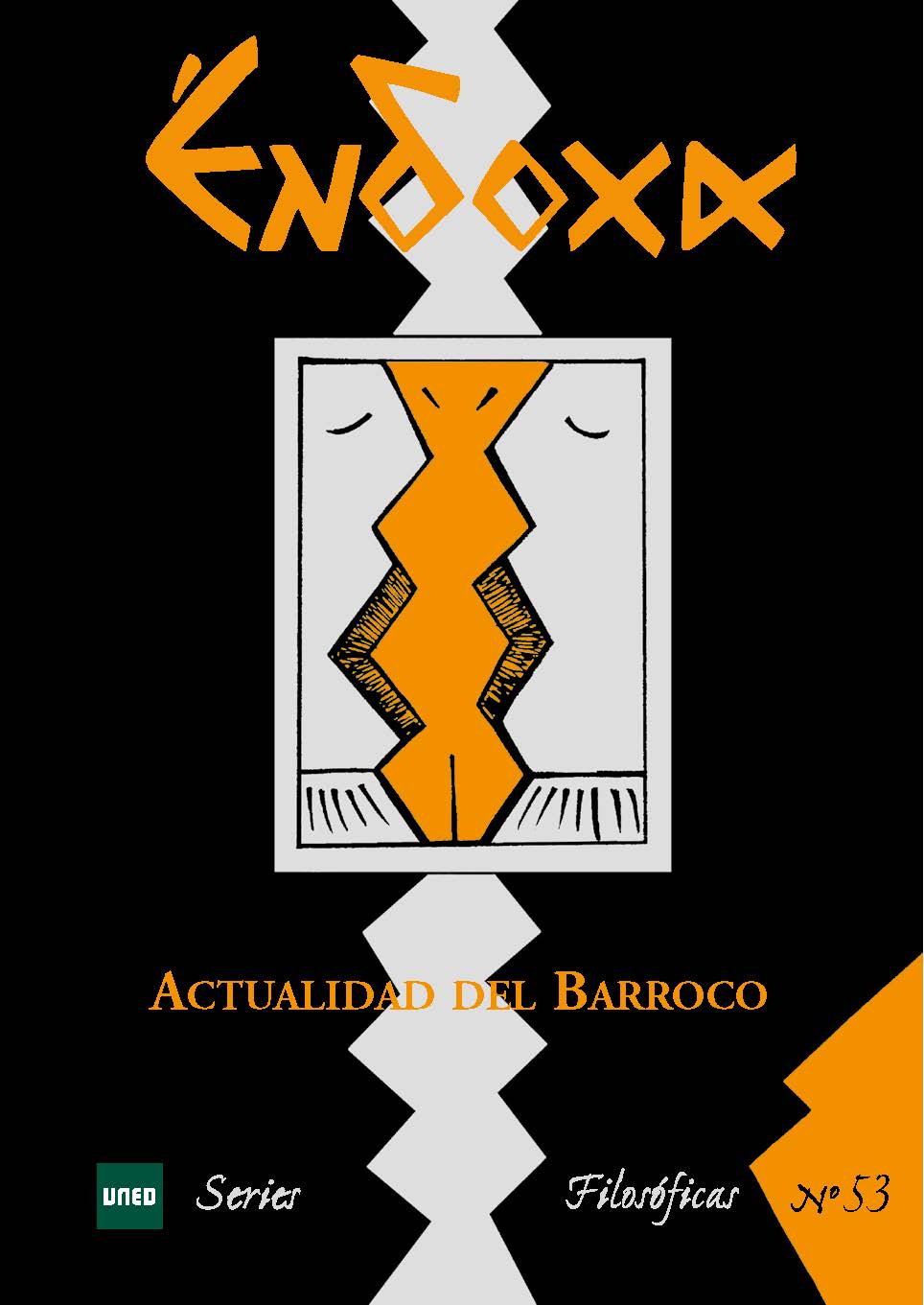BALTASAR GRACIÁN’S TOPICALITY: SPIRITUAL EXERCISES FOR A PROBLEMATIZED SUBJECT AND CRITIQUE OF CULTURE
DOI:
https://doi.org/10.5944/endoxa.53.2024.37745Keywords:
Gracián, Foucault, Ortega y Gasset, baroque, subjectivity, cultureAbstract
This paper aims to elucidate the relevance of Baltasar Gracián’s thoughts on the subject and culture from the philosophies of Michel Foucault and José Ortega y Gasset. First, I will analyze the Gracian conception of the subject from the perspective of The Hermeneutics of the Subject as a representative of an alternative modernity in which the separation between philosophy and spirituality is not consummated. Secondly, I will relate Gracian’s ambivalence about artifice to the critique of culture and technique, taking as a reference the crisis of the capacity to desire raised in Meditation on Technology as the cause of the cultural decline of the time. Through both approaches, I will highlight the relevance of Gracián’s thought in contemporary times, often characterized as Neo-Baroque.
Downloads
References
BORGES, J. L. (1993). Obra poética. 1923-1977, Madrid: Alianza Editorial.
BLÜHER, K. A. (1969). Séneca en España, Madrid: Gredos.
CEREZO, P. (2015). El héroe de luto. Ensayos sobre el pensamiento de Baltasar Gracián, Zaragoza: Institución Fernando el Católico.
DELEUZE, G. (1987 [1986]). Foucault, Barcelona: Paidós.
DELEUZE, G. (1989 [1988]). El pliegue. Leibniz y el Barroco, Barcelona: Paidós.
DELEUZE, G. (2002 [1968]). Diferencia y repetición, Buenos Aires: Amorrortu.
DESCARTES, R. (1987 [1641]), “Meditaciones metafísicas. Seguidas de las objeciones y respuestas”, en Obras completas, pp. 153-413, Madrid: Gredos.
DIÉGUEZ, A. (2017). Transhumanismo. La búsqueda tecnológica del mejoramiento humano, Barcelona: Herder.
DIÉGUEZ, A. (2021). Cuerpos inadecuados. El desafío transhumanista a la filosofía, Barcelona: Herder.
FOUCAULT, M. (2012 [2001]). La hermenéutica del sujeto. Curso en el Collège de France (1981-1982), Ciudad de México: Fondo de Cultura Económica.
GARCÍA GIBERT, J. (2004). “Artificio: una segunda naturaleza”, Conceptos: Revista de Investigación Graciana 1, pp. 13-33.
GRACIÁN, B. (1984 [1651-1657]). El criticón, Madrid: Cátedra.
GRACIÁN, B. (1993). Obras completas II, Madrid: Turner.
HEIDEGGER, M. (2007 [1953, 1951]). La pregunta por la técnica. Construir, habitar, pensar, Barcelona: Folio.
LATOUR, B. (2017 [2015]). Facing Gaia. Eight Lectures on the New Climatic Regime, Cambridge: Polity Press.
LEIBNIZ, G. W. (2004 [1686, 1714]). Discours de métaphysique suivi de Monadologie et autres textes, París: Gallimard.
MARAVALL, J. A. (1990). La cultura del Barroco, Barcelona: Ariel.
ORTEGA Y GASSET, J. (1964 [1933]). “Meditación de la técnica”, en Obras completas V (1933-1941), pp. 317-375, Madrid: Revista de Occidente.
PLATÓN (1985 [393-389 a. C.]). “Apología de Sócrates”, en Diálogos I, pp. 137-186, Madrid: Gredos.
PLATÓN (1999). “Alcibíades I”, en Diálogos VII, pp. 16-86, Madrid: Gredos.
SÉNECA, L. A. (2005 [62-65]). Epístolas Morales a Lucilio II (libros X-XX Y XII, epístolas 81-125), Madrid: Gredos.
SIMMEL, G. (2008 [1911]). “El concepto y la tragedia de la cultura”, en De la esencia de la cultura, pp. 97-122, Buenos Aires: Prometeo.
SLOTERDIJK, P. (2006 [1999]), Normas para el parque humano, Madrid: Siruela.
Downloads
Published
How to Cite
Issue
Section
License

This work is licensed under a Creative Commons Attribution-NonCommercial-NoDerivatives 4.0 International License.
The authors who publish in this journal must agree to the following terms:
- The authors hold author’s rights and guarantee the journal the right to be the first to publish the work as well as the Creative Commons Attribution License which allows others to share the work as long as they acknowledge the authorship of the work and its initial publication in this journal.
- The authors can establish, on their own, additional agreements for the non-exclusive distribution of the version of the work published in the journal (for example, placing it in an institutional repository or publishing it in a book), always acknowledging the initial publication in this journal.
- The authors are allowed and encouraged to disseminate their work electronically (for example, in institutional repositories or on their own webpages) before and during the submission process, as this can give rise to productive exchanges, as well as earlier and increased citing of the works published (See The Effect of Open Access).








